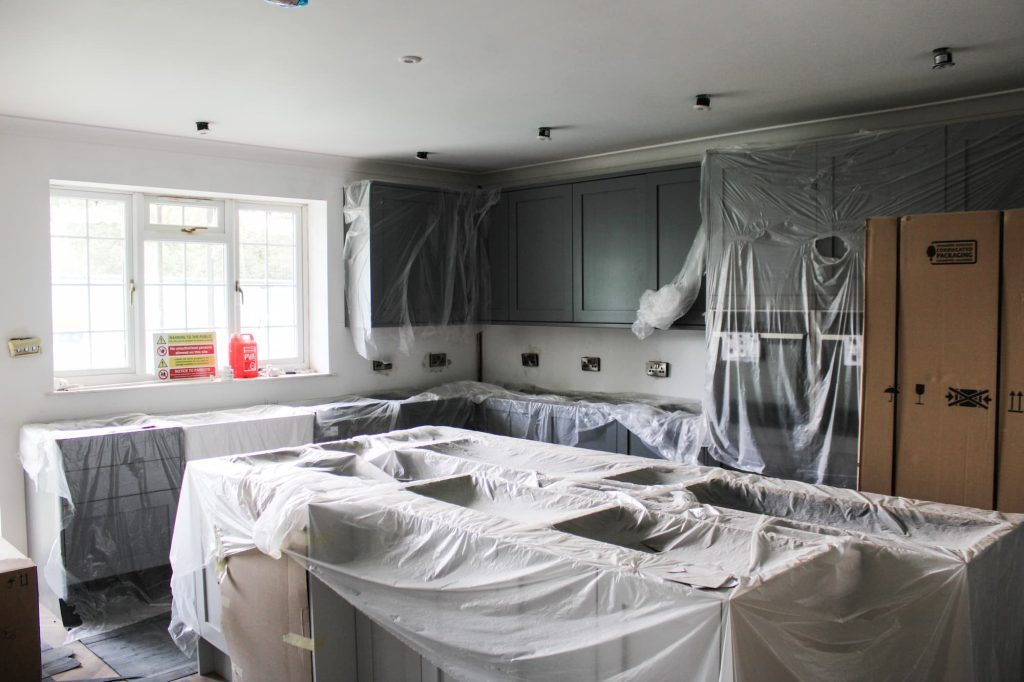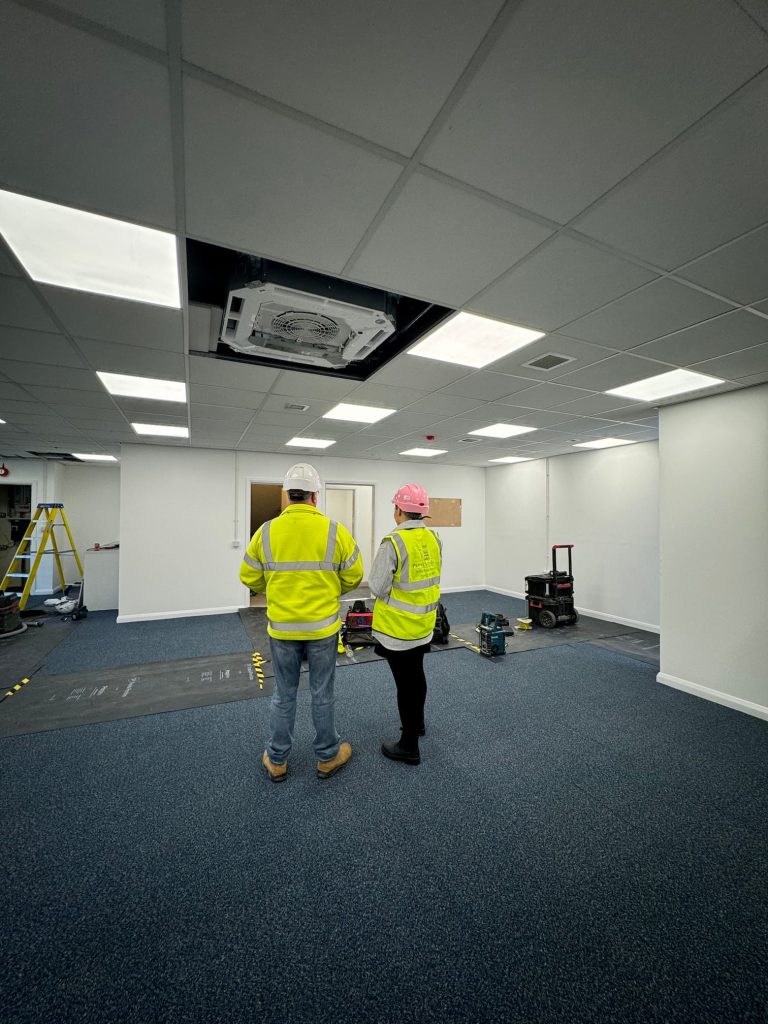If you’ve ever built a house, refitted a commercial unit, or gutted a kitchen, you’ll know the word contractor gets thrown around a lot. But what does it actually mean? And why are they so important?
At Presence & Co. we work with contractors day in, day out. From tidy refurbs to full residential builds. They’re the ones turning drawings into doorways and spreadsheets into structures.
What Is a Contractor?
A contractor is someone you hire to get a job done on site. That could mean digging footings, wiring a fuse box, fitting heating, or running the entire project.

Some work alone. Others manage a team. The best ones don’t just carry out the job. They run it. They plan, organise, and keep things moving. They know what needs doing, who needs to do it, and when.
They don’t need hand-holding. They need a clear brief, a workable budget, and room to get on with it.
Types of Contractor
There isn’t just one type.
Main contractors are in charge. They run the site, manage the trades, order materials, and report back to you.
Subcontractors handle the specialist stuff. Plumbing. Electrics. Steelwork. Jobs that need detail and accuracy. If you’re curious about how our electrical contractors work across sites of all sizes, we’ve written about it here.
Trade contractors do the finishing work. Roofing. Joinery. Decorating. They’re the ones who give a project its final polish.
The Contractor’s Responsibilities
The work starts before anyone picks up a tool.

They look through the brief. Spot issues. Plan what’s needed and who’s needed. They organise trades, materials, and deliveries. They price it properly. That’s especially true on multi-phase developments like our recent residential projects where every trade needs to work in sync.
Once the job starts, they keep it on track. They manage the people. The pace. The sequence. If something’s slipping, they fix it.
They’re also responsible for keeping the site safe. Risk assessments. Decent gear. Clear rules. Nobody wants accidents.
If something goes wrong, they don’t panic. They deal with it. Quietly. Properly. Then move on. Want to keep costs under control while still getting it done right? We’ve covered how smart contractor choices reduce maintenance costs.
Choosing the Right One
The right contractor saves you stress. The wrong one costs you time, money, and sleep.
Choose someone who turns up when they say they will. Who’s honest about the cost. Who doesn’t vanish when things get tricky. If you’re wondering how things can go badly wrong, this example spells it out.
They should ask the right questions and give straight answers. If something changes, they tell you. Not afterwards. Now.
What Makes a Great Contractor?
They’re reliable. They communicate. They don’t blame the weather when they forgot the materials.
They bring the right tools. They check the drawings. They don’t leave you with a skip full of rubble and no sign of when the tiler’s coming. We recently gave a behind-the-scenes look when Will joined our team for a day.
They’ve done it before. That’s key. Someone who’s been through the mess and stress of building knows where the traps are.
And they work with pride. They want to leave behind something solid. Something worth pointing at.
We’ve worked with some excellent ones across Kent. Builders. Electricians. Roofers. The kind of people you’d recommend without hesitation. That’s who we trust on our projects.
Why Contractors Matter

Contractors hold the job together. Without one, even the best plans fall flat.
They get people talking to each other. They stop overlaps and delays. They make sure no one’s waiting three days for the skip to turn up. We’ve seen it first-hand on recent renovation projects where timing and trade coordination made all the difference.
And they bring a human touch. Building can be stressful. Delays. Decisions. Cost. You want someone who doesn’t flinch when things go sideways. Who stays calm. Keeps the tone steady. And gets the job finished.
What Clients Want to Know Before and During a Build
How early should I involve a contractor in my project?
As early as possible. A good contractor will help flag buildability issues, spot cost risks, and offer practical advice that can save time and money later. Don’t wait until plans are finalised.
What should be included in a contractor’s quote?
At a minimum: scope of work, timelines, payment schedule, materials (and who’s supplying them), and any exclusions. If it’s vague or looks templated, ask questions.
Can I use multiple contractors on the same project?
Yes, but it’s not always wise. Without someone coordinating, trades can clash, timelines slip, and standards vary. That’s why many people choose a main contractor to manage everything.
How do I check if a contractor is legit?
Ask for references. Visit past jobs. Check they’re insured. A solid contractor won’t flinch at questions like this—they’ll welcome them.
What if the contractor runs over budget or time?
Delays happen, but they should never be a surprise. A reliable contractor will spot issues early and talk to you about them. That’s why communication matters more than price.
Do I need a written contract for small jobs?
Yes. Even for half-day jobs. It protects both sides and keeps things clear. Verbal agreements lead to misunderstandings, especially when expectations differ.


